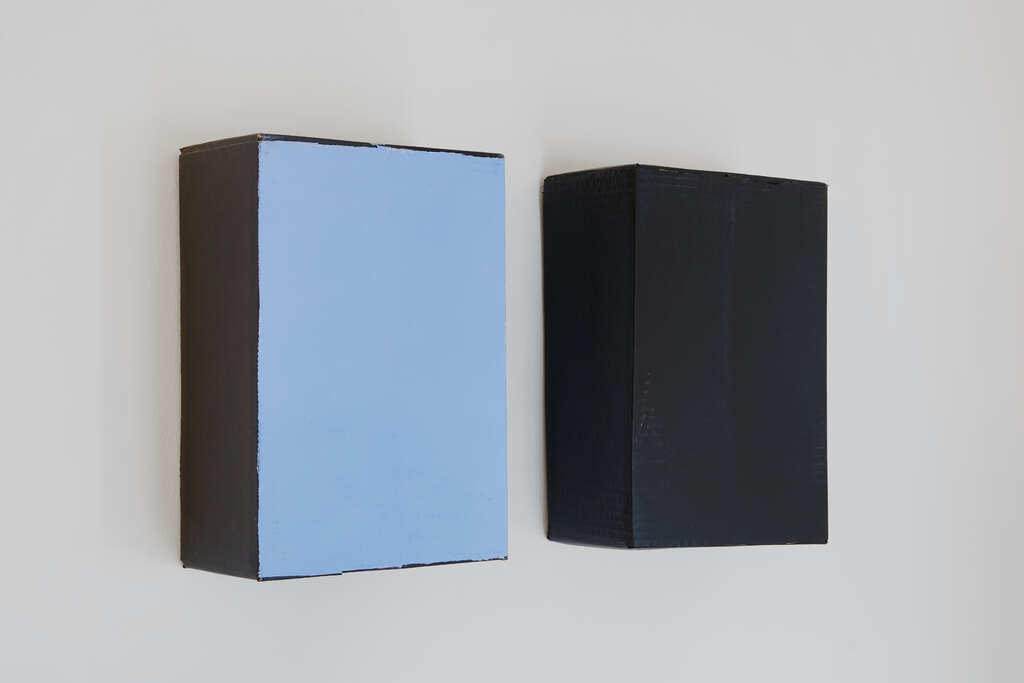
Philippe Van Snick - 1985
TheMerode is delighted to present "In Sole Ambulare", its fifth exhibition curated by Emmanuelle Indekeu. This exhibition invites us into the complex and disconcerting world of Albert Camus’ acclaimed novel "L'Etranger". Inspired by the enigmatic character of Meursault, whom the reader follows from the announcement of his mother's death up until his sentence, this exhibition explores the novel’s profound themes of solitude, the absurd, the lack of distance from things and judgement.
"In Sole Ambulare" (walking in the sun) presents the Sun as a character in its own right. Omnipresent in the novel, the Sun burns, blinds, and reveals. It shines light on the "truth" and cruelty of the world. Artworks by artists such as Christine Safa, Adriano Costa and Oscar Tuazon, evoke the stifling heat of the sun. This sun provokes a duality within Meursault, exacerbating his physical hypersensitivity in contrast with his mental insensitivity.
Puting him at odds with society, Meursault's uncompromising honesty is the foundation of Camus' work. He is a stranger to convention, unable to play the game of social norms. Works, such as those by Hélène Delprat, confront us with these norms, exposing feelings that we may ascribe to our anti-hero. For Meursault, life is absurd, and he resents our desire to pretend that it has any meaning. As he exists in its immediacy, he finds no reason to discuss the meaning of life.
His relationship with life is characterised by immediacy both in his behaviour as well as in his mind and psyche. He lives in the present moment, without reflecting on the past nor anticipating the future.
Exploring this immediacy, the exhibition invites the viewer to question their own relationship to time, space and life. Photograhs by Paulo Nazareth appear like fragments of memory, echoing an excessive proximity to reality. Artworks evoking the absurd, in the Camusian sense, such as the paintings and drawings by Tursic & Mille, Ante Timmermans, are found throughout the building. A piece by Michelangelo Pistolleto, in which the viewer becomes part of the work, goes so far as to eliminate the distance between object and subject.
Meursault, solitary and detached, roams through a world that is beyond him. He is a stranger to the corruption that rules society. Judgement is an omnipresent theme throughout the novel and as Meursault is judged, it becomes apparent that those who judge him are in fact dissociated while he in contrast is whole. As Sartre said, we are all busy playing a role in order to give ourselves an identity. The question of identity, central to the exhibition, is revealed in the form of portraits, notably the photographs of Marcel Bascoulard and Ricardo Basbaum.
Truth, which should be at the helm and the foundation of society, is blurred and values are turned upside down. Meursault, who tells the truth, finds himself on trial because he does not go along with the game of appearances. So the story goes, society decides to execute a man for being honest: he was not sad when his mother died. "In our society, any man who does not weep at his mother's funeral risks being sentenced to death", Camus.
This judgement appears in numerous artworks exhibited at TheMerode, such as Mircea Cantor's Don't judge filter shoot and its outcome, imprisonment, which is represented by Walter Swennen's work, can be viewed on the top floor of the building.
In Meursault's eyes, society is governed by denial and illusion, there only to disguise reality in order to make it more bearable. We grow to learn that the character of Meursault is in fact the prisoner of the cave, who has left the cave, seen the sun, seen the cosmic organ of truth, and now knows the truth and accepts it. Namely that life is absurd.
The various subjects explored in this novel, as those throughout Camus's oeuvre, are timeless and of vital importance, particularly in the face of today's challenges. Indeed, this first installement exploring the absurd, introduced by “L’Etranger”, is merely a segment of the path leading ultimately to love, a conclusion that has never been delivered and that we have yet to write.